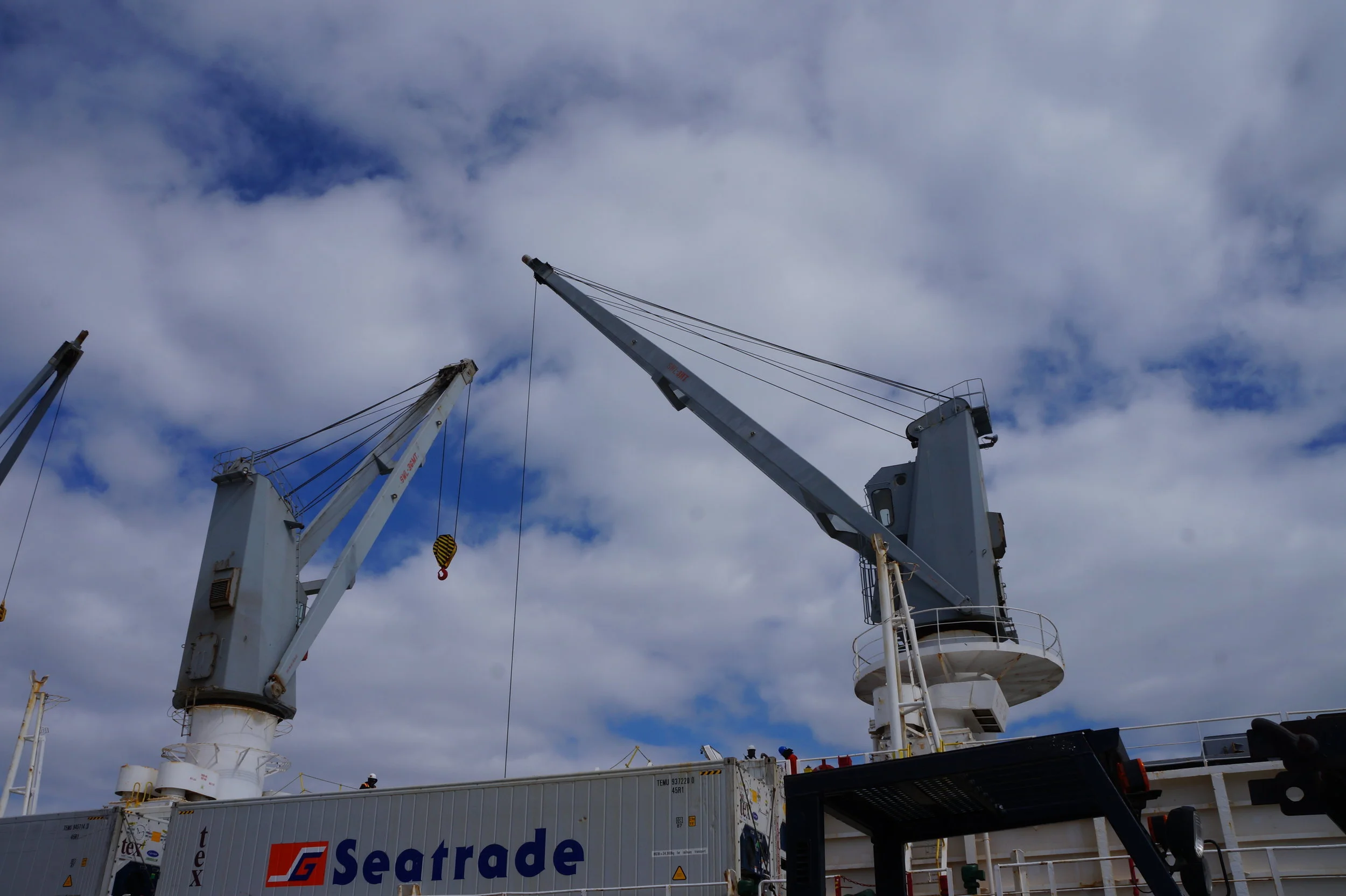By Sierra B., Alexandra C., Hailey C., Rebecca K., & Raquel S.
The frigid and harsh winds of New Bedford were discouraging at most to our group of seven. The weather was 36℉ and cloudy, and being by the sea only made the trip feel more intense. As a class, along with Sabrina and Mrs. Eastman, we met with Pierre Bernier, a Quebecois, and a professional in manager-freight forwarding and stevedoring, and Jessica Shahdan, who is in charge of the New Bedford State Pier. They gave us a tour of the wharf as a Dutch vessel, The Malta, was docked to fuel and unload Moroccan clementines . This shipment had been delayed by several days to the recent snowstorm, remnants of which still covered the ground. We watched as clementines were unloaded from The Malta and temporarily stored inside of a warehouse.
These clementines were shipped across the Atlantic from Morocco, and will soon be driven to Montreal, Canada. During this next step in transportation, the clementines will be sealed inside trucks until they cross the Canadian border in order to ensure that harmful pests, such as the Mediterranean fruit fly, will not infect vulnerable American citrus crops.
We were also told about the weather conditions that clementines undergo. Although the specific clementines delivered today are not going to be sold in the US, we learned that other foods that are distributed to the US through this port are kept at a temperature of 31℉ for fourteen days to eliminate harmful insects and diseases. Before transporting to different locations, the items are stored at 40℉ in a warehouse located on the state pier. Within the warehouse, everything is separated by quality, weight, and destination.
Though The Malta was built in the country of its namesake, it is owned by Holland. Its origin is represented by a Maltese flag, and an American flag is used to show acknowledgement that the ship is currently docked in the United States. Another flag denotes that it is taking on fuel. The crew of The Malta is extremely diverse: while the majority are from the Philippines, there are also crewmembers from several other countries, namely Germany and Russia. The ship docks in many different ports, such as those of Morocco to pick up clementines and Ecuador to receive bananas.
Being able to meet the ship and speak with those that work on it was an eye-opening experience for the group. After learning about the importance of port trade to an area's economy and culture through lectures and textbook readings, it was totally gratifying to see those lessons realized right in our backyard. In two weeks time, we'll be able to go to school as we do every day and know that what we've learned is currently in action just a few blocks over.




